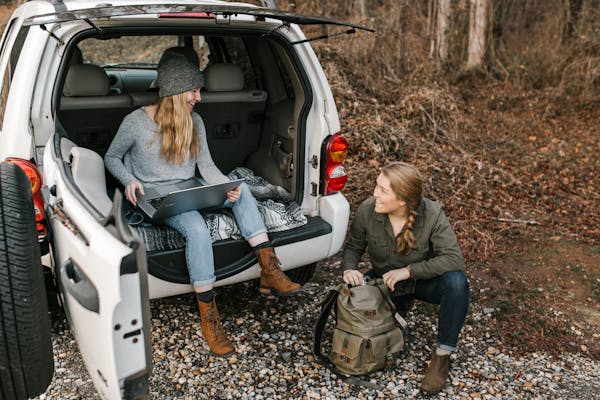This advertorial is by Amanda Roberson
Traveling to Africa can be a fantastic opportunity for students to learn more about the world, themselves, and beautiful African countries. Of course, an African trip will require specific preparations, as any other travel plan will. Fortunately, we have prepared a few valuable tips for you. So, get ready for a trip of a lifetime. By the way, don’t forget to entrust any delayed homework to services like writepaperfor.me, as you won’t have time (and maybe an Internet connection) during your travels. So, here’s what you need to know.
Think about where in Africa you want to go
Let’s not forget that Africa is a massive continent with over 50 countries. So, choosing where to go can get difficult right away. First, some states are typical tourist destinations, while others are much less known.
So, here you should decide between a lesser traveled path or something more suited for tourists.
First, your experience as a traveler should determine how well you can manage different parts of Africa, especially if you don’t travel with a group.
Secondly, determine your expectations and wants from the trip. Thus, you may enjoy vibrant nightlife somewhere in Kenya or Nigeria. You can also have toured across the vineyards of South Africa. Perhaps, you just want to chill on a lovely beach and scuba dive in Egypt, Madagascar, or Tunisia. Or, of course, you may go on a Safari in Tanzania or Botswana. Each country will have something unique to offer.
Remember, though, that there are some regions you don’t want to visit for safety measures. For instance, Sudan and South Sudan are still in conflict, affecting their economy and not guaranteeing any security.
Do your shots
Africa has many diseases local to only this continent. So, don’t play with danger, and do your shots well in advance. Many countries won’t let you in unless you have all your vaccines done. Think about how big of a deal these shots are if you can be denied to enter the country without them. The list of common diseases will vary in every region.
However, malaria and yellow fever are the two most widely spread and dangerous illnesses you can come across in central Africa. States in that region will have antimalarial prophylactics and yellow fever vaccines as an entry requirement. Both these illnesses are highly unpleasant to deal with and lead to undesirable consequences. So, read about the vaccine requirements and what else you can do to stay safe and healthy.
For one, you may inform a family doctor about your travel plans and ask them for recommendations. Simple things like taking immune-boosting vitamins or flu shots can also help. Plus, follow common health tips, like eating only freshly cooked food, covering your unprotected skin with an insect repellent, and using a mosquito net over your bed. Lastly, pack a well-planned First Aid Kit and take enough of your prescribed medication.
Learn about countries’ history
Reading up on African history is much recommended before you set foot in a new, unfamiliar country. First, most African countries have lived through grave episodes for the last century and more. So, respecting their past, shared pain, and events they’ve gone through is the bare minimum any tourist can do. Secondly, and perhaps, more critically, African countries have a much longer history than just the colonization period. So, although respecting the recent past of the countries is essential, don’t just focus on that. Some African kingdoms existed longer than many European royal houses.
African culture is rich, diverse, and mesmerizing. Learn some parts of its culture, history, and traditions to make an excellent first impression on the locals. Besides, being well-educated about the place you visit also helps you appreciate it more. So, consider spending a few hours researching or ordering a paper from speedypaper.com. The latter will save you time while you prepare for the rip. Thus, you can read a professionally done research paper on a plane or in your hotel room.
Get ready for African cuisine
So, unless you have visited an African home, you haven't tried the local traditional African cuisine. But, again, it will vary in different African regions. Still, for the most part, it may be something you haven't tried or seen before. So, be ready to taste some unusual meat cuts and flavor combinations. Some food may also be a bit too spicy for the typical Western traveler, so be mindful of that.
You may want to read local receipts before going on a trip to know what you eat. Also, switching to spicier food in preparation for the journey will help you deal with local cuisine better. Keep in mind that most countries in hot or humid climates prefer to spice up their dishes as it keeps them healthy and enriches food with antibacterial properties. So, it’s best to eat as locals in terms of spice to stay healthy and well.
Come as a traveler, not a volunteer
Of course, there is nothing wrong with volunteering, especially in countries that need help. However, many volunteering centers exploit young people’s drive to help and engage in rather fraudulent activities. So, unless you are hundred percent sure that the agency you contact is real, honest, and the world for the good of Africa (and if you genuinely have something to bring to the table in terms of knowledge or skills), don’t send them your money or come as a volunteer. Also, sometimes volunteers pay more money for receiving this volunteering experience than they would have for traveling across several African countries on their own.
Be ready to be amazed
Lastly, Africa is so many things at once. It will keep surprising you for as long as you are there. Regardless of what you expect to see, there will be more than you could have ever imagined. It’s one of those places you can’t solve even after spending years living there. Everything from nature to people will never be the same. Nature, for one, will completely transform the landscape depending on the time of the year.
The people will speak so many different languages around you that it’s impossible to remember or know them all. But most importantly, the changes can be felt even in the air. It’s not just about the climate but the spices and other smells unique to the African continent.





